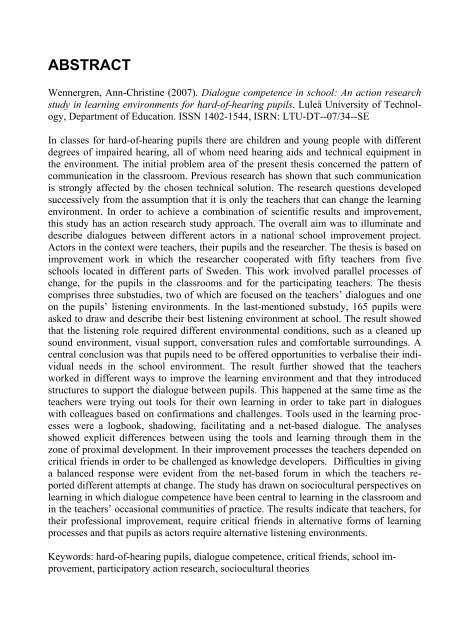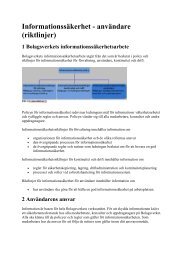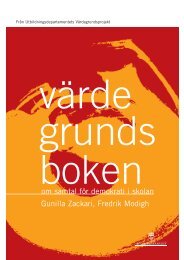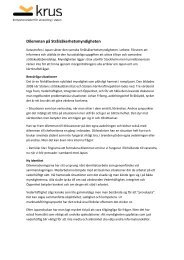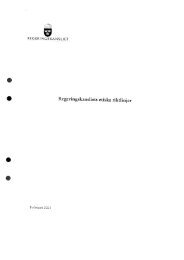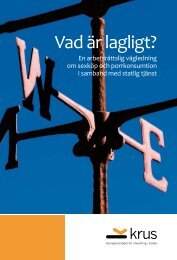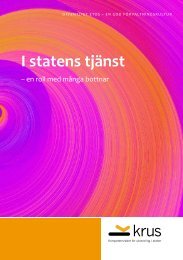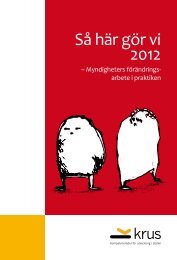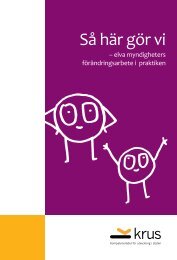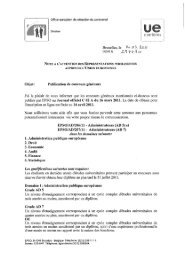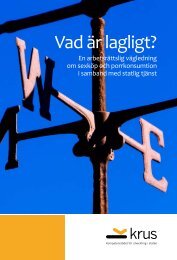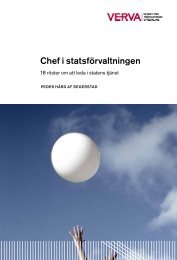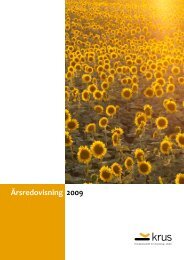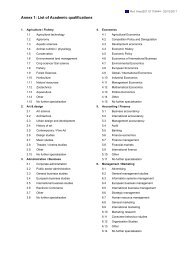Dialogkompetens i skolans vardag - Publikationer - LTU - Luleå ...
Dialogkompetens i skolans vardag - Publikationer - LTU - Luleå ...
Dialogkompetens i skolans vardag - Publikationer - LTU - Luleå ...
Create successful ePaper yourself
Turn your PDF publications into a flip-book with our unique Google optimized e-Paper software.
ABSTRACT<br />
Wennergren, Ann-Christine (2007). Dialogue competence in school: An action research<br />
study in learning environments for hard-of-hearing pupils. Luleå University of Technology,<br />
Department of Education. ISSN 1402-1544, ISRN: <strong>LTU</strong>-DT--07/34--SE<br />
In classes for hard-of-hearing pupils there are children and young people with different<br />
degrees of impaired hearing, all of whom need hearing aids and technical equipment in<br />
the environment. The initial problem area of the present thesis concerned the pattern of<br />
communication in the classroom. Previous research has shown that such communication<br />
is strongly affected by the chosen technical solution. The research questions developed<br />
successively from the assumption that it is only the teachers that can change the learning<br />
environment. In order to achieve a combination of scientific results and improvement,<br />
this study has an action research study approach. The overall aim was to illuminate and<br />
describe dialogues between different actors in a national school improvement project.<br />
Actors in the context were teachers, their pupils and the researcher. The thesis is based on<br />
improvement work in which the researcher cooperated with fifty teachers from five<br />
schools located in different parts of Sweden. This work involved parallel processes of<br />
change, for the pupils in the classrooms and for the participating teachers. The thesis<br />
comprises three substudies, two of which are focused on the teachers’ dialogues and one<br />
on the pupils’ listening environments. In the last-mentioned substudy, 165 pupils were<br />
asked to draw and describe their best listening environment at school. The result showed<br />
that the listening role required different environmental conditions, such as a cleaned up<br />
sound environment, visual support, conversation rules and comfortable surroundings. A<br />
central conclusion was that pupils need to be offered opportunities to verbalise their individual<br />
needs in the school environment. The result further showed that the teachers<br />
worked in different ways to improve the learning environment and that they introduced<br />
structures to support the dialogue between pupils. This happened at the same time as the<br />
teachers were trying out tools for their own learning in order to take part in dialogues<br />
with colleagues based on confirmations and challenges. Tools used in the learning processes<br />
were a logbook, shadowing, facilitating and a net-based dialogue. The analyses<br />
showed explicit differences between using the tools and learning through them in the<br />
zone of proximal development. In their improvement processes the teachers depended on<br />
critical friends in order to be challenged as knowledge developers. Difficulties in giving<br />
a balanced response were evident from the net-based forum in which the teachers reported<br />
different attempts at change. The study has drawn on sociocultural perspectives on<br />
learning in which dialogue competence have been central to learning in the classroom and<br />
in the teachers’ occasional communities of practice. The results indicate that teachers, for<br />
their professional improvement, require critical friends in alternative forms of learning<br />
processes and that pupils as actors require alternative listening environments.<br />
Keywords: hard-of-hearing pupils, dialogue competence, critical friends, school improvement,<br />
participatory action research, sociocultural theories


